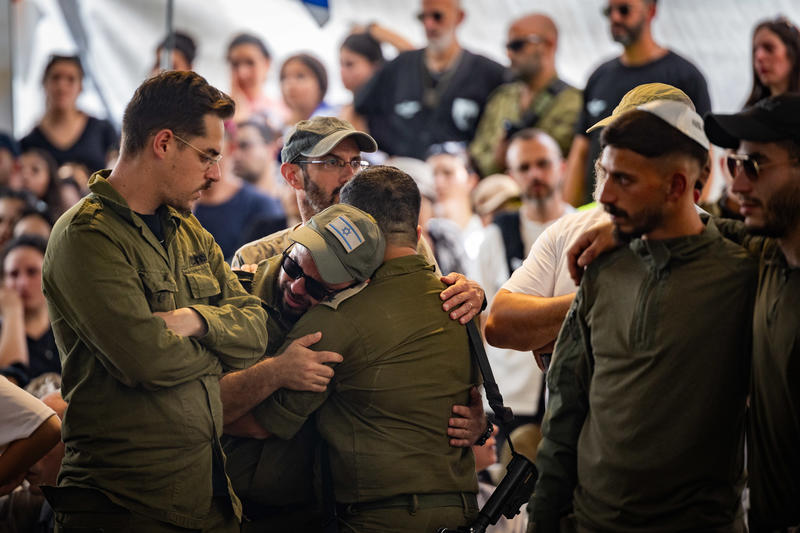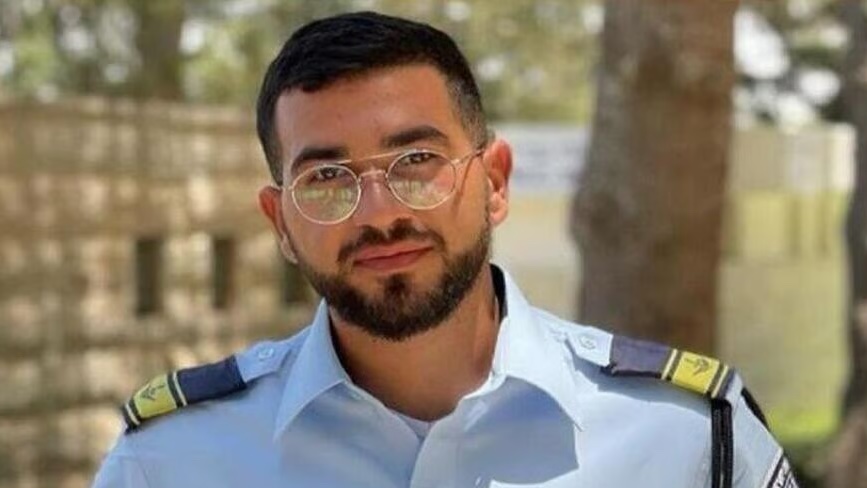An Israel Defense Ministry forecast paints a grim picture of the psychological impact of the “Iron Swords” war. By 2028, Israel expects to recognize at least 100,000 IDF veterans as wounded—half with severe post-traumatic stress disorder (PTSD). These are the invisible scars of war, now on track to become a national crisis.
Since October 7, 2023, over 18,500 IDF soldiers and security personnel have entered the Defense Ministry’s Rehabilitation Division. Many are dealing with acute trauma alongside physical injuries. The previous projection of “100,000 disabled veterans by 2030” has now been accelerated to 2028. The reason? A surge in PTSD among those who encountered and fought against Hamas’s initial invasion and in the subsequent war.
In 2024, some 1,600 soldiers were officially recognized as suffering from PTSD. Another 9,000 are in the recognition pipeline. There is currently a total of 3,769 recognized cases from this war alone—an unprecedented number in IDF history.
A young generation, shattered
Why has this war produced so many more cases of PTSD? That’s the question many are asking. Over 50% of the new psychological casualties are under the age of 30. Many are young parents, mostly reservists. Over 12,000 soldiers have been removed from active duty and are also no longer contributing to the economy. The damage is spreading far beyond the battlefield.
Heartbreaking 💔 Daniel Edri, an IDF soldier who fought in Gaza and suffered from PTSD, took his own life this morning.
May his memory be a blessing. pic.twitter.com/44G3NeLNhR
— Vivid.🇮🇱 (@VividProwess) July 6, 2025
These numbers are overwhelming the system. The Defense Ministry is operating with just one social worker for every 750 wounded. Officials now urgently need at least 150 additional trained mental health professionals to handle the surge.
And military experts warn that the numbers are expected to grow. The real wave of trauma hits after combat ends. As the tempo of operations slows, symptoms begin to surface. During active conflict, soldiers often experience a kind of psychological “immunity.” But once quiet returns—if it does—reality catches up. That’s when the flood of cases is expected to rise dramatically.
New treatment models
The Defense Ministry has launched mobile psychiatric emergency units, alternative therapies like dog and diving therapy, and opened four “open homes” near psychiatric hospitals for short-term mental care. All are already at full capacity. A special facility in Hofit now houses reservists from October 7 who can’t cope with civilian life at home.
National economic challenge
These mental wounds come at a high cost for the Israeli economy. The surge in PTSD cases will add billions to the defense budget. Fundraising campaigns once focused on gear and welfare centers are now pivoting to finance trauma recovery programs for tens of thousands of combat veterans.
In addition to the direct costs of care, many of those suffering PTSD are no longer contributing to the Israeli economy. An outsized percentage of the reservists serving in the Gaza war are from the more economically-productive sectors of Israeli society, including a great many hi-tech workers. Having them removed from the workforce for extended periods of service, and perhaps permanently due to PTSD, is having a serious negative impact.
Uncharted territory
IDF and Defense Ministry officials acknowledge that this is a crisis unlike any other. Even veterans of past conflicts are relapsing under the psychological toll of Gaza. The war has triggered mental breakdowns even among those long discharged.
As one senior official put it bluntly: “We can’t tell an 80-year-old disabled veteran, ‘You’ll have to wait until next month for help.’”
Want more news from Israel?
Click Here to sign up for our FREE daily email updates















Getting home from Vietnam was a good thing, I survived. But being welcomed home by very few friends and family was a let down. The war was still going on and was going to keep going as long as there were people protesting about everything they heard from the news media who we found were not on our side. The protesting was like ice cream and cake to our enemies, it encouraged them to keep fighting because they had allies among those protesting. But you couldn’t tell those doing the protesting they were helping to kill their own troops, they were either getting paid for it or they thought it was the best thing they could do.
Then came news guys were killing themselves, WHY, it blew me away. They survived war and all the filth involved in it then killed themselves. PTSD is tough, but there is help to those who reach out to the Lord. You can’t drink it away, you can’t do enough drugs to get better. It takes time to get better, the Lord is there when you think you can’t go another step. All you have to do is reach out and take His hand. Reading through the Psalms, King David had times when he was going through PTSD, those who are there can recognize it. He always called out to the Lord, who are we to not follow his lead?